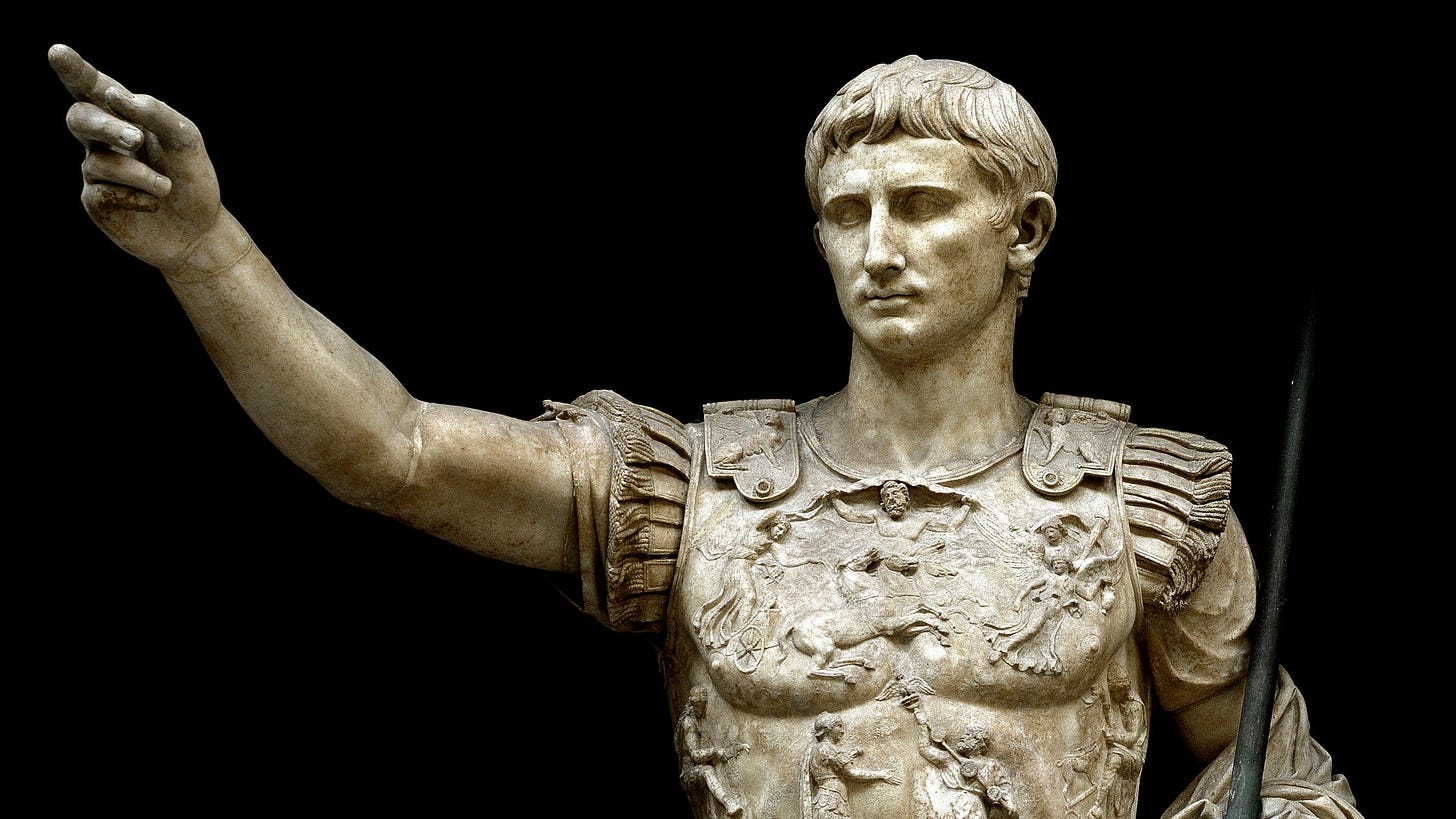Dear Classical Wisdom Reader,
This is our last week of summer. Next week, we won't start school or return to the office... We will fly back to winter, to the just-above-freezing temperatures of Buenos Aires, where I will find nice reading spots two inches in front of the radiators and gloves I can wear inside.
I’m not a fan of the cold and, as such, I’m enjoying the heat, eyeing up the pools and beaches and trying to make the most of doing nothing. It’s something I do to connect with the ancients... Indeed, if you are also enjoying a -no doubt- much needed holiday, please relish in the fact that you too are partaking in a time honored tradition... one that dates back 2,000 years.
But why is the month of August a time when, every year, the cities that occupy the region of the old Roman empire empty out into the seaside and countryside towns and suddenly no one does anything? Well, it has to do with the history of August itself...
Originally named Sextilis, August was the sixth month in a ten month year. It switched to position number eight in 700 BC when January and February were added to the year before March by King Numa Pompilius, who also gave it 29 days. Then in 8 BC it was given its modern term in honor of Augustus, the first Roman Emperor.
Perhaps Augustus picked the now eighth month in reverence to his pre-Imperial name of Octavian... or maybe he just reasoned in all his wisdom that it's just too darn hot to do anything in August...so everyone should just take a holiday. A popular move, no doubt.
And to kick off proceedings, he introduced Feriae Augusti, or the festival of Emperor Augustus, in 18 BC. This beloved holiday linked the various August festivals to provide a longer period of rest, called "Augustali", which was felt necessary after the hard labor of the previous weeks.
This was, of course, in addition to its propaganda function...
Indeed, many argue that there was no ancient better at propaganda than Augustus, as indicative of the great works left behind... but Augustus brought peace and prosperity to the Empire, he was literally a god on earth, and he rebuilt a decrepit and decaying Rome, so why then is there any doubt that the poets winged worship was anything other than genuine?
That, dear reader, is an excellent question!
Classical Wisdom Members, please enjoy today’s in-depth look at the man, the legend, and this month’s namesake: Gaius Julius Caesar Augustus. We’ll look at how he was depicted by the writers of the day, and whether or not their praise of him was honestly fawning...or fake.
Members, you can also enjoy our Ebook on the Age of Augustus, below as well as the original text - Suetonius’ work tracing the Life of Augustus: From Boy to Emperor.
So please, kick up your heels, sit back and relax and learn about the man who not only gave everyone a holiday, but also turned the Eternal city from bricks into marble.
All the best,
Anya Leonard
Founder and Director
Classical Wisdom
Propaganda or Praise? The Age of Augustus
By Ben Potter
31 BC Greece - the decisive fight of the Roman Republic, the war that would transform Rome from an oligarchic democracy into a... ahem... “benevolent” dictatorship. It was the Battle of Actium.
The swell of the sea and the creak of the wooden galleys that carried the soldiers of Octavian and Mark Anthony must have left an icy chill in the veins of the protagonists on that tempestuous September day. For it was one of those key moments; one of the junctions when history rolls over the points and nothing is ever quite the same again.
Rome’s political future was up for grabs and, more specifically, so was the decision of who would be at the helm to steer her into Anno Domini...
Octavian has managed to establish himself as princeps (first citizen), pontifex maximus (high priest), tribunicia potestas (honorary tribune) and, most importantly, Augustus (revered one).
Known historically as the first emperor, Augustus had not got to where he was simply by defeating Anthony. He had worked hard to win over the people of Rome and, more importantly, the traditional seat of power – the Senate.
Whilst this partly came about through the judicious usage of carrot and stick, fortunate timing and ruthless opportunism, Augustus had another tool to help consolidate his power, one which had never been used on such a grand scale or quite so systematically before; propaganda.
Keep reading with a 7-day free trial
Subscribe to Classical Wisdom to keep reading this post and get 7 days of free access to the full post archives.




